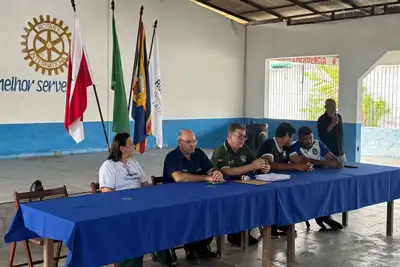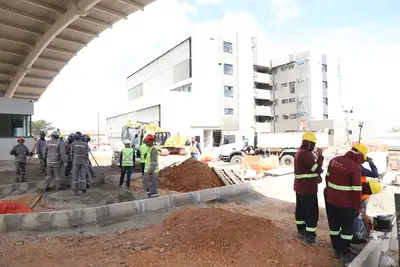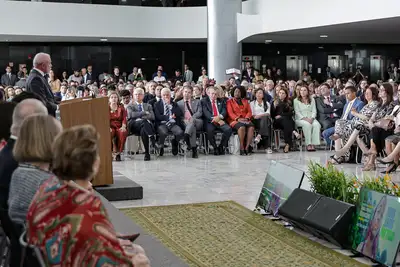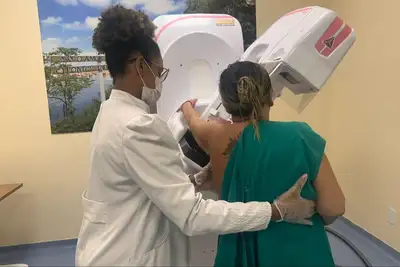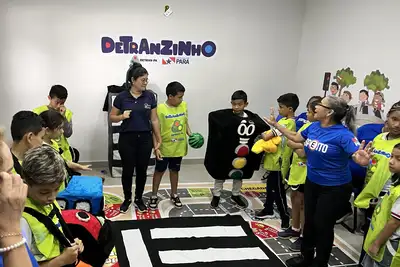Polyclinic Lago de Tucuruí reinforces the importance of welcoming and active listening
Psychologist explains the role of multidisciplinary work in caring for patients in emotional distress
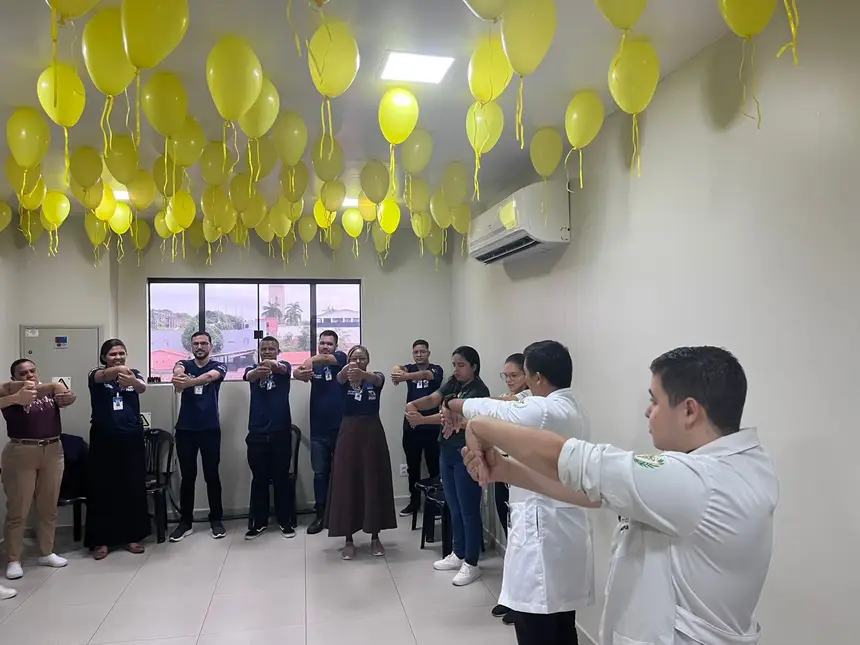
Suicide prevention starts with attention and listening. During Yellow September, the Polyclinic Lago de Tucuruí, a unit of the Government of Pará, reinforces the importance of welcoming and multidisciplinary care for those facing emotional distress.
“The most common warning signs appear in the way a person speaks and behaves. Often, the person mentions that they no longer see meaning in life, that they feel like a burden, or even talks about dying. They may also isolate themselves, stop doing things they enjoyed, become more irritable or sad than usual, start drinking or using drugs excessively, or even neglect themselves,” explains Jordana da Silva Ferreira, a psychologist at the unit managed by the Institute of Social and Environmental Health of the Amazon (ISSAA).
Another point of attention is when they start saying goodbye, donating belongings, or looking for ways to hurt themselves. “Recent losses, chronic illnesses, or previous attempts also increase the risk. It is the combination of these signs that should raise the alarm because that is when the person needs listening and professional help the most,” highlights the specialist.
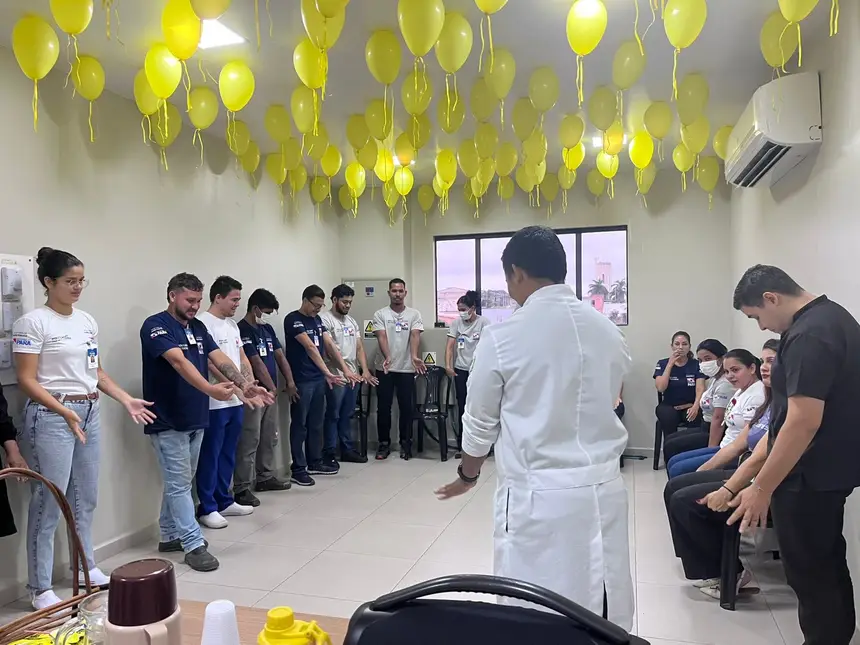
Welcoming from the first contact
The Polyclinic seeks to offer a caring space right from the patient's arrival. “For stable cases, the patient can be referred to psychotherapeutic care, which helps them better cope with daily difficulties and strengthen emotional resources. When the situation requires more attention, depending on the severity, a referral is made to specialized services, ensuring that the person receives the appropriate support for their needs,” said Jordana.
Care
The unit conducts 32 weekly psychology appointments, distributed among Tuesdays, Wednesdays, and Thursdays. For Jordana, active listening is an essential tool. “It gives the patient the chance to feel truly heard, welcomed, and respected in their pain, which significantly reduces the feeling of loneliness and helplessness,” she observes.
This care is enhanced by multidisciplinary work. “Emotional distress often involves different dimensions of life: while the psychologist provides emotional support, the doctor assesses clinical conditions, the nurse monitors warning signs, and the social worker can assist with practical issues and family support. This integration makes care more complete and effective, increasing the chances of recovery and well-being.”
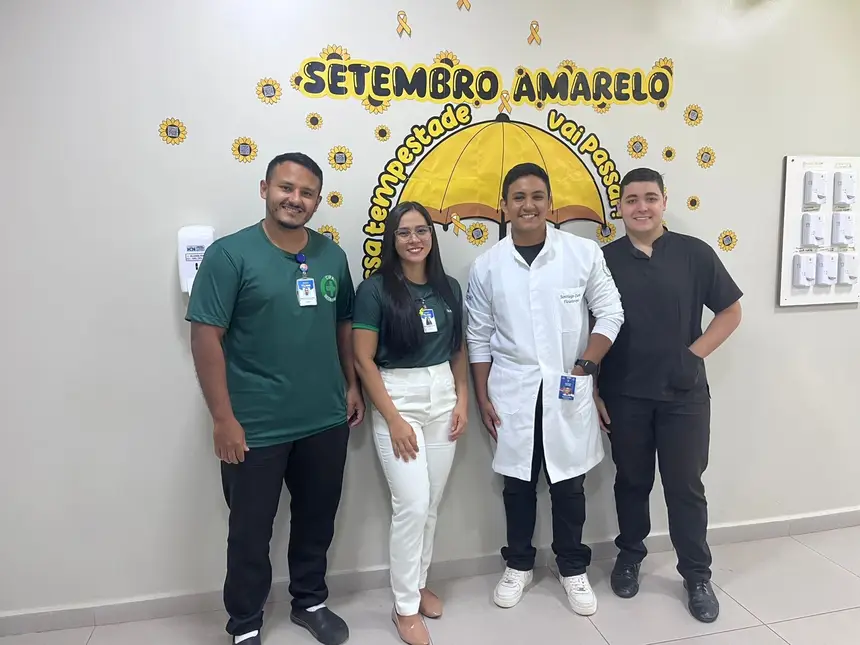
Flow
In cases of severe psychological distress, there is a specific flow of care. “The referral is made to the UPA, where the patient receives clinical stabilization or is directed to other services that can provide adequate support,” reinforces Jordana.
The Polyclinic guarantees outpatient care, aimed at stable situations. In emergencies, the recommendation is to immediately seek the UPA. “Active listening can prevent risk situations because it allows the person to talk about what they feel without judgment, which often alleviates anguish and prevents suffering from intensifying in silence. When someone realizes they are taken seriously and that their pain matters, they feel safer to ask for help and less alone in the face of difficulties. Moreover, attentive listening helps identify warning signs early, enabling quick interventions,” concludes the psychologist.
Commitment
Yellow September is an invitation to broaden the dialogue and combat the stigma surrounding mental health. “At the Polyclinic Lago de Tucuruí, prevention occurs through listening, welcoming, and integrating knowledge, reminding that every gesture can be fundamental to saving lives,” highlights the executive director of the unit, Léia Sandim.
Access – To access the services of the Polyclinic, it is necessary for the user to go through the regulation system, after initial care and evaluation in primary health care, such as health posts and Basic Health Units (UBSs).
Service: The Polyclinic Lago de Tucuruí is a fully public unit, with all services provided at no cost to users, located at Avenida Raimundo Veridiano Cardoso, No. 1008, in the Santa Mônica neighborhood.
Text by Roberta Paraense


